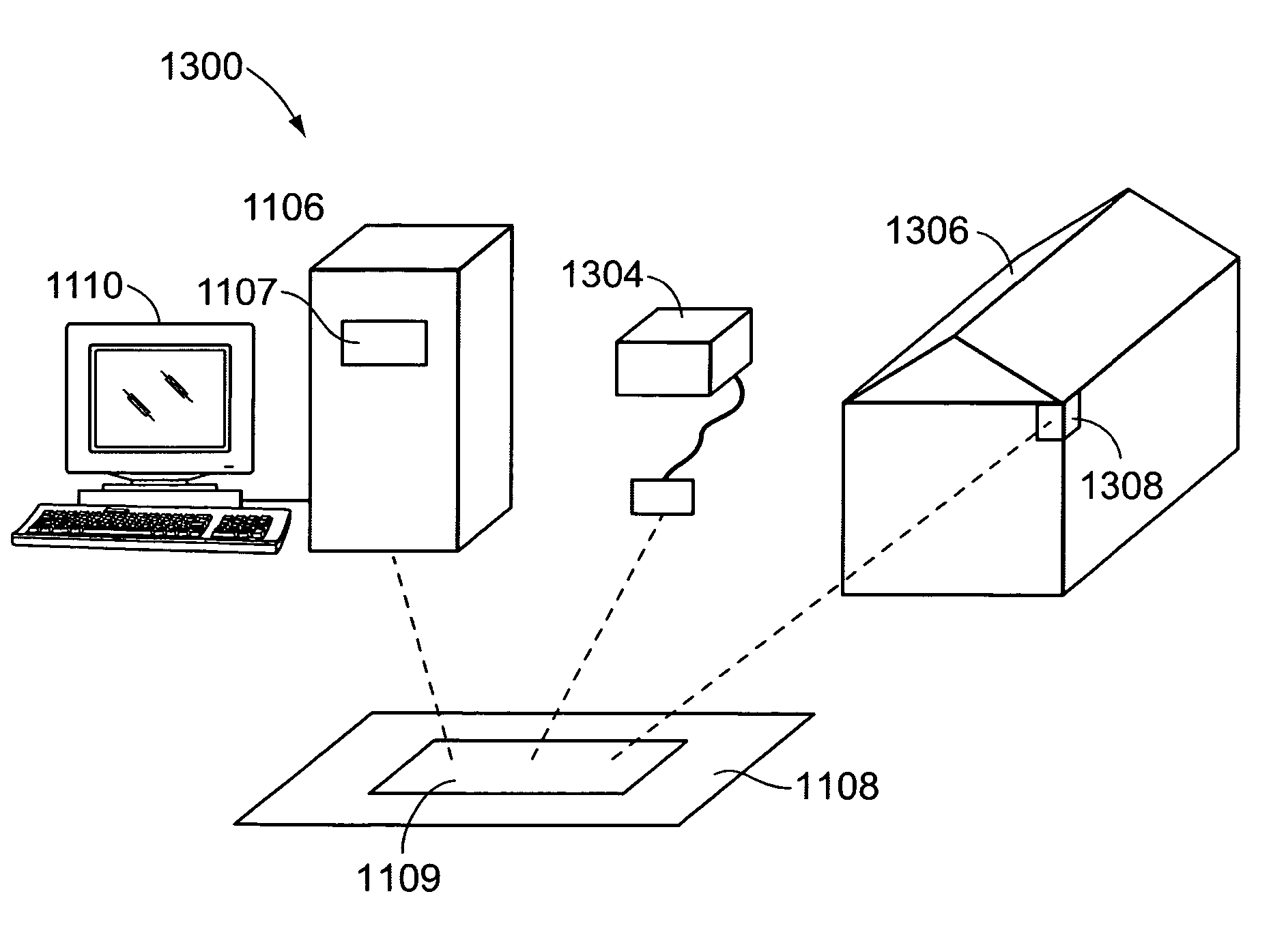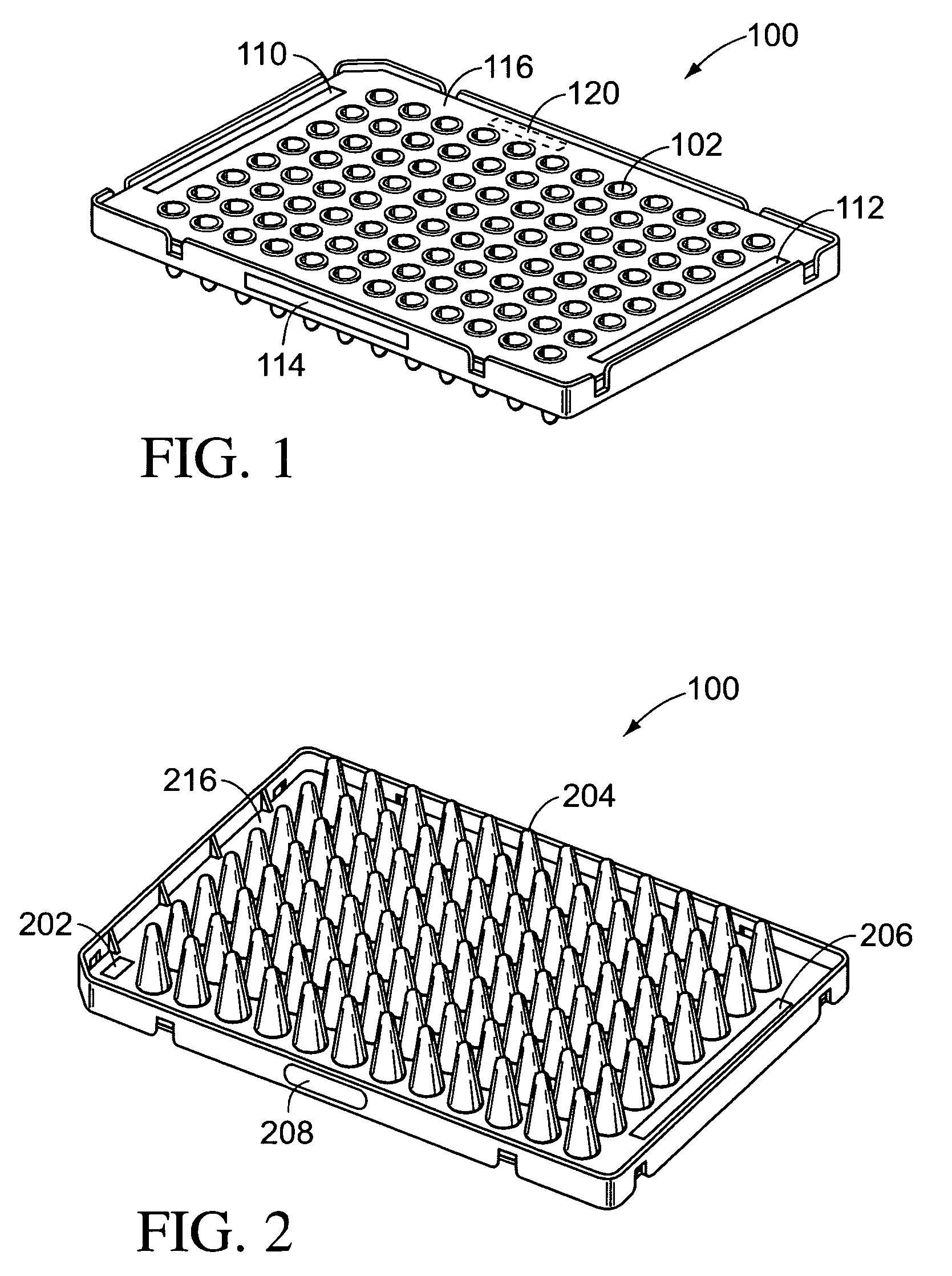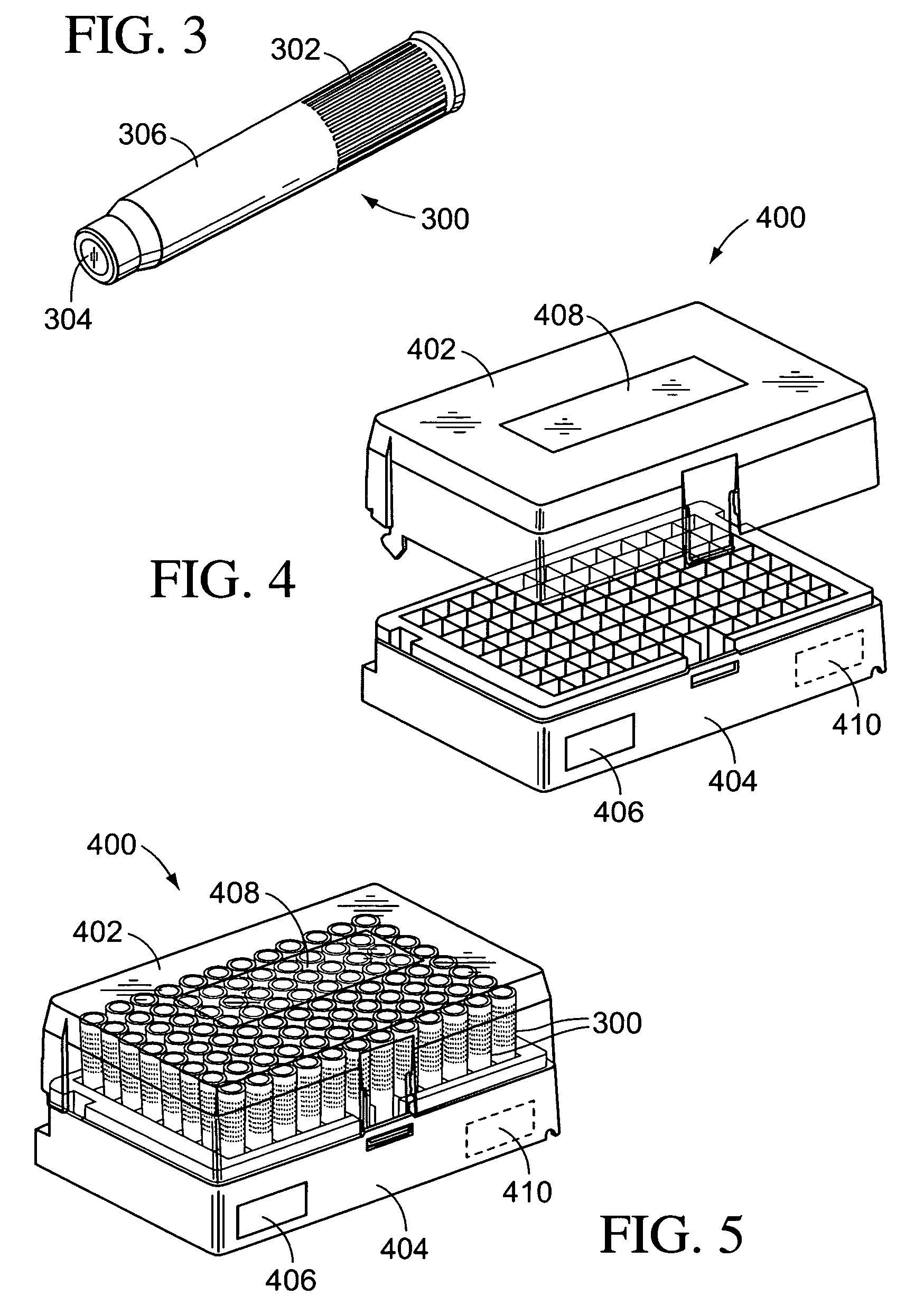Methods and systems for using RFID in biological field
a biological and biological technology, applied in the field of biological methods and systems, can solve the problems of optical reading and scanning problems, inconvenient and problematic, and inconsistencies in printing
- Summary
- Abstract
- Description
- Claims
- Application Information
AI Technical Summary
Benefits of technology
Problems solved by technology
Method used
Image
Examples
Embodiment Construction
[0027]Reference will now be made in detail to some embodiments, examples of which are illustrated in the accompanying drawings. Wherever possible, the same reference numbers are used throughout the drawings to refer to the same or like parts.
[0028]Radio Frequency Identification (“RFID”) provides a convenient mechanism for identifying and detecting objects using wireless electromagnetic signals. A basic RFID system has at least one RFID reader and at least one RFID tag. Typically, RFID readers can include a coil or antenna and circuitry to transmit and receive signals with the coil or antenna. An RFID tag also includes a coil or antenna and some information that can be read by an RFID reader.
[0029]The RFID reader antenna generates an electromagnetic field, thereby transferring energy to the tag. Depending on the design of the tag, a portion of the energy transferred to the tag will be reflected to the reader so as to provide information about the tag back to the reader. Some RFID sys...
PUM
| Property | Measurement | Unit |
|---|---|---|
| distances | aaaaa | aaaaa |
| distances | aaaaa | aaaaa |
| surface plasmon resonance | aaaaa | aaaaa |
Abstract
Description
Claims
Application Information
 Login to View More
Login to View More - R&D
- Intellectual Property
- Life Sciences
- Materials
- Tech Scout
- Unparalleled Data Quality
- Higher Quality Content
- 60% Fewer Hallucinations
Browse by: Latest US Patents, China's latest patents, Technical Efficacy Thesaurus, Application Domain, Technology Topic, Popular Technical Reports.
© 2025 PatSnap. All rights reserved.Legal|Privacy policy|Modern Slavery Act Transparency Statement|Sitemap|About US| Contact US: help@patsnap.com



